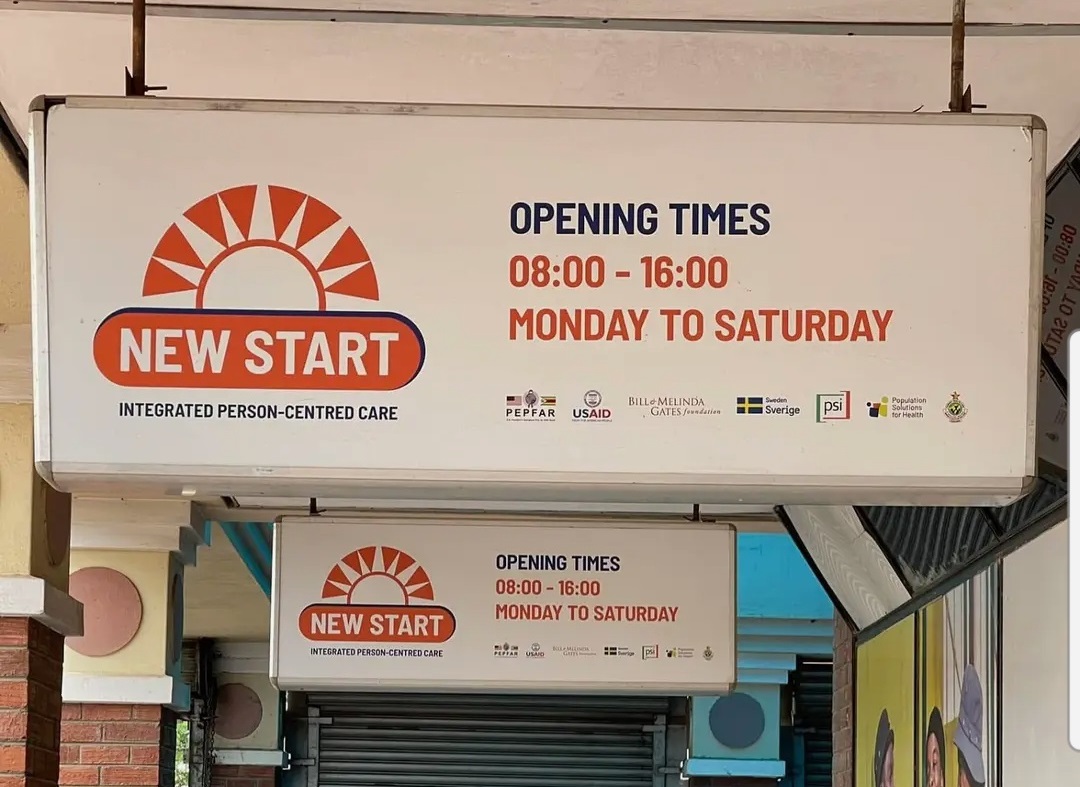Harare, Zimbabwe | The New Start Centre has temporarily closed its doors due to the recent withdrawal of USAID funding, creating a significant disruption for those reliant on the centre for essential HIV/AIDS prevention and treatment services.
The centre, which has been a critical provider of ART (Antiretroviral Therapy) and PrEP (Pre-exposure Prophylaxis), was heavily supported by USAID, which played a crucial role in funding HIV-related services across the country.
With the pull-out of USAID funding, the New Start Centre is struggling to continue providing these life-saving services to the many patients who depend on them.
The temporary closure means that individuals due for ART and PrEP refills will need to seek assistance at nearby health facilities. This shift has raised concerns about potential delays and interruptions in treatment, which can have serious health implications for individuals living with HIV or at high risk of contracting the virus.
The effects of this closure are far-reaching. For many patients, the New Start Centre was not just a place to access medication but also a supportive environment where they could receive guidance, counseling, and comprehensive care. With the centre closed, many may experience added stress and confusion in trying to navigate the healthcare system to access their medication.
Read: Andy Muridzo Opens Up on Split with Mai Keketso – “Akadyiwa naManager Wangu”
The USAID pull-out has exacerbated these challenges, particularly for vulnerable populations in areas where healthcare resources are already limited.
The sudden reduction in funding has left a gap in services, making it more difficult for individuals to maintain continuous access to ART and PrEP, both of which are critical in preventing the spread of HIV and ensuring the health of those already living with the virus.
The closure of the New Start Centre serves as a reminder of the reliance on international support for HIV/AIDS programs. The withdrawal of USAID funding underscores the vulnerabilities faced by healthcare systems that are heavily dependent on external aid. Without sustainable local funding and infrastructure, the future of comprehensive HIV care in the country remains uncertain.
During this temporary closure, the New Start Centre has advised affected patients to visit their nearest health facility for refills and further assistance. While this provides a short-term solution, it remains to be seen how local health facilities will cope with the increased demand and whether they can provide the same level of service and care as the New Start Centre.
The public is encouraged to continue adhering to their treatment schedules and to reach out to healthcare workers for support during this challenging time. The New Start Centre has expressed its gratitude for the understanding and patience of the community as they work to overcome these challenges and resume full operations.
For more information or assistance, patients are urged to contact local health facilities or community health workers for guidance on accessing HIV treatment and care.

For comments, Feedback and Opinions do get in touch with our editor on WhatsApp: +44 7949 297606.
